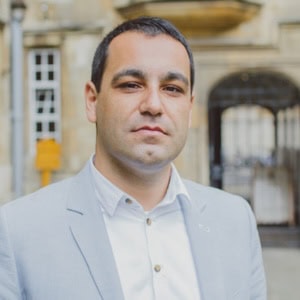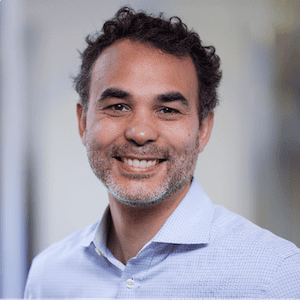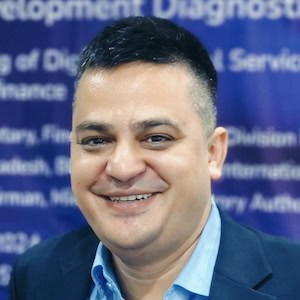-
‘Ready, Steady, Scale!’: A Practical Tool to Assess Your Social Business
To scale in base-of-the-pyramid markets, social ventures need to learn to operate and grow in complex, uncertain and resource-limited markets, and become highly adaptive to market and social context. That's why the MIT Practical Impact Alliance developed "Ready, Steady, Scale!" It's a guide to help inclusive business practitioners better understand their organization’s readiness for scale and to clearly identify opportunities for improvement.
- Categories
- Social Enterprise
-
Fixing the Social Enterprise Skill Shortage: Why a ‘Fundamental Rethink’ is Needed
Social business advocates and intermediary organizations often focus on supporting entrepreneurs themselves – but there is a bigger challenge lurking beneath the surface, says Amani Institute co-founder Roshan Paul. It's crucial to build the teams that organizations need to grow and thrive in the marketplace. The problem, however, is there's a shortage of resources focused on growing those teams and talents that make social enterprise possible.
- Categories
- Social Enterprise
-
Social Impact Incentives: A New Solution for Blended Finance
In just six years, social enterprise Clínicas del Azúcar has grown into the largest private provider of specialized diabetes care in Mexico, but faces an almost constant challenge to balance its financial and social performance. That's where social impact incentives (SIINC) come into play. A new solution for blended finance, SIINCs align profitability with social impact by paying social enterprises directly for proven social outcomes.
- Categories
- Energy, Health Care, Investing, Social Enterprise, Technology
-
Entrepreneurs Are the Same Person All Over the World. And That’s a Good Thing.
Steven R. Koltai, an entrepreneur and international development expert, believes the U.S. and other powerful nations should give to seed funds and invest in accelerators for foreign startups because "entrepreneurs are the same person all over the world." They aren't interested in socio-political and religious grievances that lead to violence and war, he says, but are a "bridge" class of people, capable of linking nations and cultures.
- Categories
- Investing
-
Managing Trade-Offs Between Impact and Profit – Finding the Formula for BoP Business
Eugenia Rosca's study of small enterprises in BOP markets reveals that many of them have similar characteristics and are founded to respond to highly pressing local issues. The businesses usually identify a social need and develop a market to address it; then, in time, around one-third of them reported an increased orientation toward economic goals. To be successful, they should acquire skills, resources and capabilities for both social and economic activities.
- Categories
- Environment, Social Enterprise
-
From Extremely Poor to Entrepreneur: A Starter Asset Combined with Mentorship Forges Pathway Out of Poverty
Today Arfa Bibi runs a successful vegetable farming business in India. Only a few years ago, however, Bibi and her husband struggled to feed their family and she even resorted to begging. Her transformation into entrepreneur came thanks to Kolkata-based nonprofit Bandhan-Konnagar's graduation model program Targeting the Hardcore-Poor, whose success was cited in a six-country MIT study of 21,000 of the world's poorest people.
- Categories
- Agriculture
-
Addressing Eye Care in Emerging Markets with Blended Finance
WHO estimates that 39 million people suffer from blindness, more than half of them due to cataracts, and more than 90 percent of blind people live in the developing world. Cataracts are often curable but the traditional surgery is expensive. Convergence is supporting GlobalVision's plan to build on the affordable eye model that Aravind pioneered in India and establish a network of 60 eye care hospitals in emerging markets over the next 10 years, borrowing techniques from the microfinance sector.
- Categories
- Health Care, Investing, Social Enterprise, Technology
-
Full Financial Inclusion in India? How the ‘JAM Trinity’ Can Help Businesses Make it a Reality
Changes in India’s financial inclusion ecosystem in the past 10 years have increased access, writes Prabhat Labh, CEO of Grameen Foundation India, but that's only part of the equation. More must be done to ensure poor families can actively use these services. Fortunately, the JAM trinity – Jan Dhan accounts, the Aadhaar ID system and mobile technology – has enabled completely new business models that scale processes for customer acquisition.
- Categories
- Uncategorized










